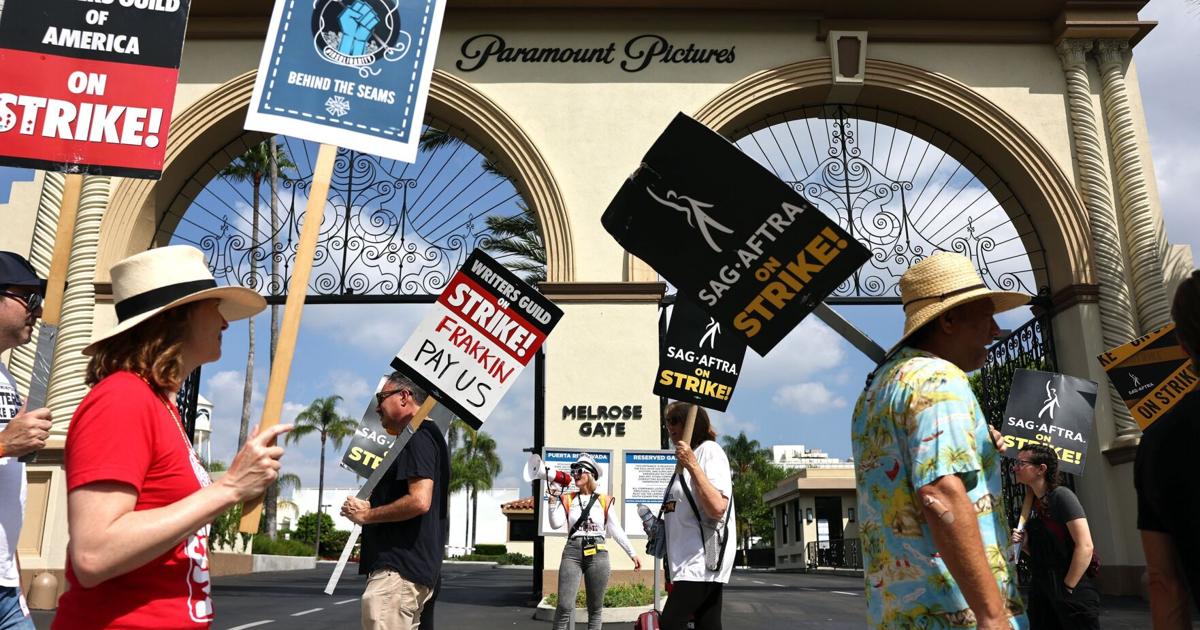(CNN) — As studios and writers return to the bargaining table Wednesday, the economic impact of the months-long writers’ and actors’ strikes has surpassed a staggering $5 billion, and the pain is increasingly being felt across multiple industries, according to economists.
In New York alone, the disruption of 11 major productions, which applied for the state’s tax credit program, has resulted in a loss of $1.3 billion and 17,000 hires in the state, according to Empire State Development.
Across the U.S., “we are definitely moving towards $6 billion in costs, but I cannot say for certain we are there yet,” says Kevin Klowden, the Milken Institute’s chief global strategist. Klowden says major impacts are coming from a rise in evictions, which is also tied to the end of eviction moratoriums in California. Klowden said he’s also observing a lot of staffing cuts in restaurants and service firms, as well as expenditure cutbacks at studios.
Todd Holmes, an associate professor of entertainment media management at Cal State Northridge, points to the U.S. Bureau of Labor and Statistics (BLS), which recorded a drop of 34,800 employees in the motion picture and sound recording industries between May and August.
“There’s no doubt that a lot of that is due to the strikes,” Holmes says, adding that there could be more strike-related losses recorded in other BLS categories, including those in makeup, catering, custodial work, and other businesses that support productions. “It’s been a real mess, and it just gets worse each day as the strikes continue,” he added.
Many job losses are from entertainment industry adjacent businesses like History for Hire, a prop shop whose owner, Pam Elyea, feels the ripple effect on those that rely on the entertainment industry.
Elyea’s company works to dress the sets of movies, TV shows, commercials and music videos, renting out everything from sports equipment to battle gear for period pieces.
Before the strike, she says her 33-thousand square foot warehouse was “extremely hectic” with phones ringing and a staff of 15 to 20 moving orders of props in and out.
Now, she’s had to cut half her staff because demand is drying up. The remaining staff members switched to a California workshare program this week, where they work reduced hours, receive partial unemployment benefits, while maintaining health insurance.
“I would have people in and out here, I would have swing guys come and pull orders,” Elyea tells CNN, looking at just a few items on carts in her warehouse awaiting pick-up. “We’d be boxing stuff, we’d be on the phones, the phone would be ringing, I would have twice the staff that I have right now. It would be extremely hectic.”
The ongoing strike is taking an emotional toll on Elyea, who says History for Hire has been in business for forty years.
“I’m the one who worries at night,” a choked-up Elyea tells CNN. “You don’t lay somebody off without thinking, I’m not just taking their job, they’re gonna lose their home, they’re gonna lose their apartment because nobody makes enough to, to live in Los Angeles. This is an extremely expensive city to live in. So, so you’re really impacting someone’s life.”
As negotiations drag on, two Los Angeles County supervisors intend to file a motion Wednesday night to create a business interruption fund for county businesses affected by these strikes.
The-CNN-Wire
™ & © 2023 Cable News Network, Inc., a Warner Bros. Discovery Company. All rights reserved.




